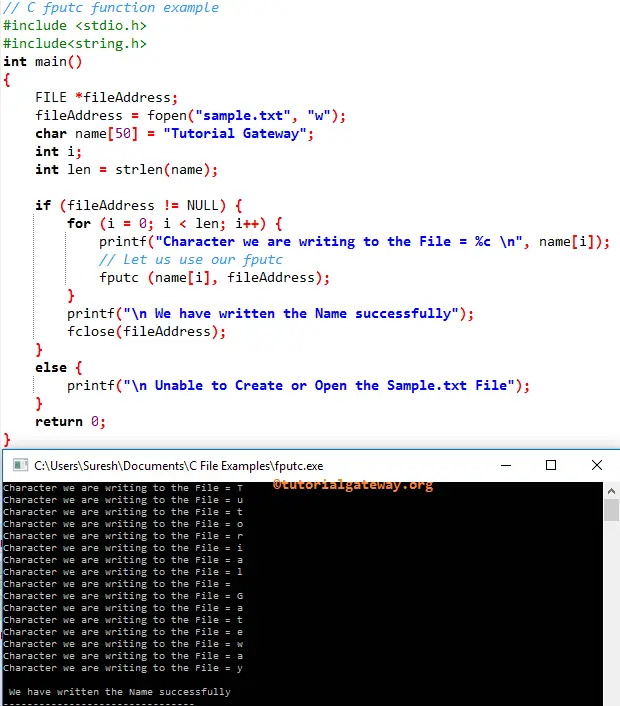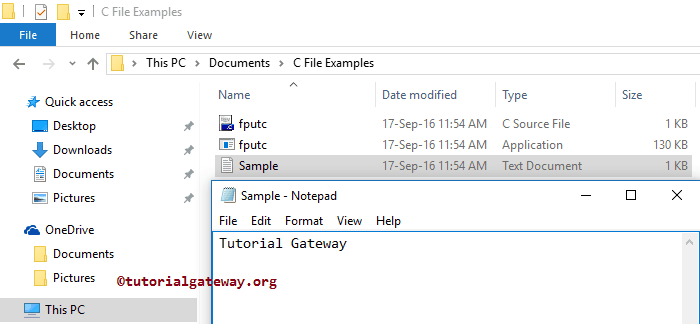The C fputc function is useful to write the character(s) to the specified stream at the current position in a file and then advance the pointer position.
How to write the character, character array (string), or string data to a File using fputc with an example? Use the C fputc function to write the complete string. The Syntax of this fputc function is
int fputc(int char, FILE *stream) or int fputc(int char, <File Pointer>)
We use the empty file to demonstrate the fputc function. You have to include the #include<stdio.h> header before using this fputc function.
fputc in C Programming Example
The fputc function writes the character(s) to the user-specified file. This C program will help you to understand the same.
#include <stdio.h>
#include<string.h>
int main()
{
FILE *fileAddress;
fileAddress = fopen("sample.txt", "w");
char name[50] = "Tutorial Gateway";
int i;
int len = strlen(name);
if (fileAddress != NULL) {
for (i = 0; i < len; i++) {
printf("Character we ar writing to the File = %c \n", name[i]);
// Let us use
fputc (name[i], fileAddress);
}
printf("\n We have written the Name successfully");
fclose(fileAddress);
}
else {
printf("\n Unable to Create or Open the Sample.txt File");
}
return 0;
}

Let us open the File to see whether it returned the characters.

